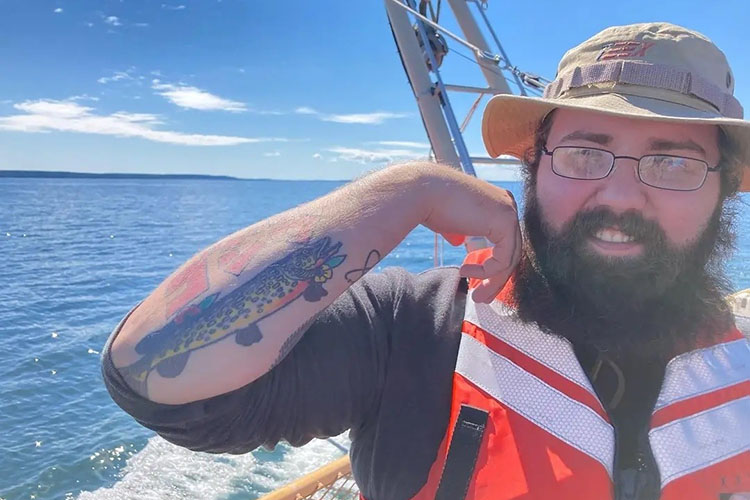One of the things Dominic Marr enjoyed about his internship with the Water Technology Accelerator Laboratory (WaTA) is that it required ingenuity.
“It was nice to come up with ideas and see how they went,” says the May graduate of the UWM School of Freshwater Sciences Professional Science Master’s program. “It was wonderful to have moments where things I didn’t expect to happen happened and left me with more questions.”
Marr researched the use of fiberoptics in identifying E. coli in water samples, in hopes of finding a more efficient way to detect these harmful bacteria. The current method used by the U.S. Environmental Protection Agency requires specific training by qualified personnel, and results take at least 18 hours.
“My research, which built upon previous efforts by the Water Technology Accelerator Laboratory, explored ways to use fiberoptic-based sensors, computer vision, and electrical currents to detect E. coli in water samples in real-time or near real-time,” Marr says.
During his internship, Marr created a crude sensor from scratch, using fiberoptic wire and a camera, and refined it to capture images of the bacteria on slides. While the sensor needs further refinement and testing, his work laid a strong foundation to build upon. He plans to publish a paper on his research, and he hopes to eventually create a sensor that could be used on buoys or other structures to detect harmful E. coli in water.
While the technical skills he gained were critical to his future as a scientist, Marr also learned a lot about networking and collaboration.
“Being successful in this field takes some initiative. If you aren’t going to talk to people about what interests you, you’ll have a hard time going anywhere,” he says. “I found my internship by talking to Dr. Marcia Silva [director of WaTA], and I found something really exciting from it that I have a strong feeling will shape a lot of my future.”
